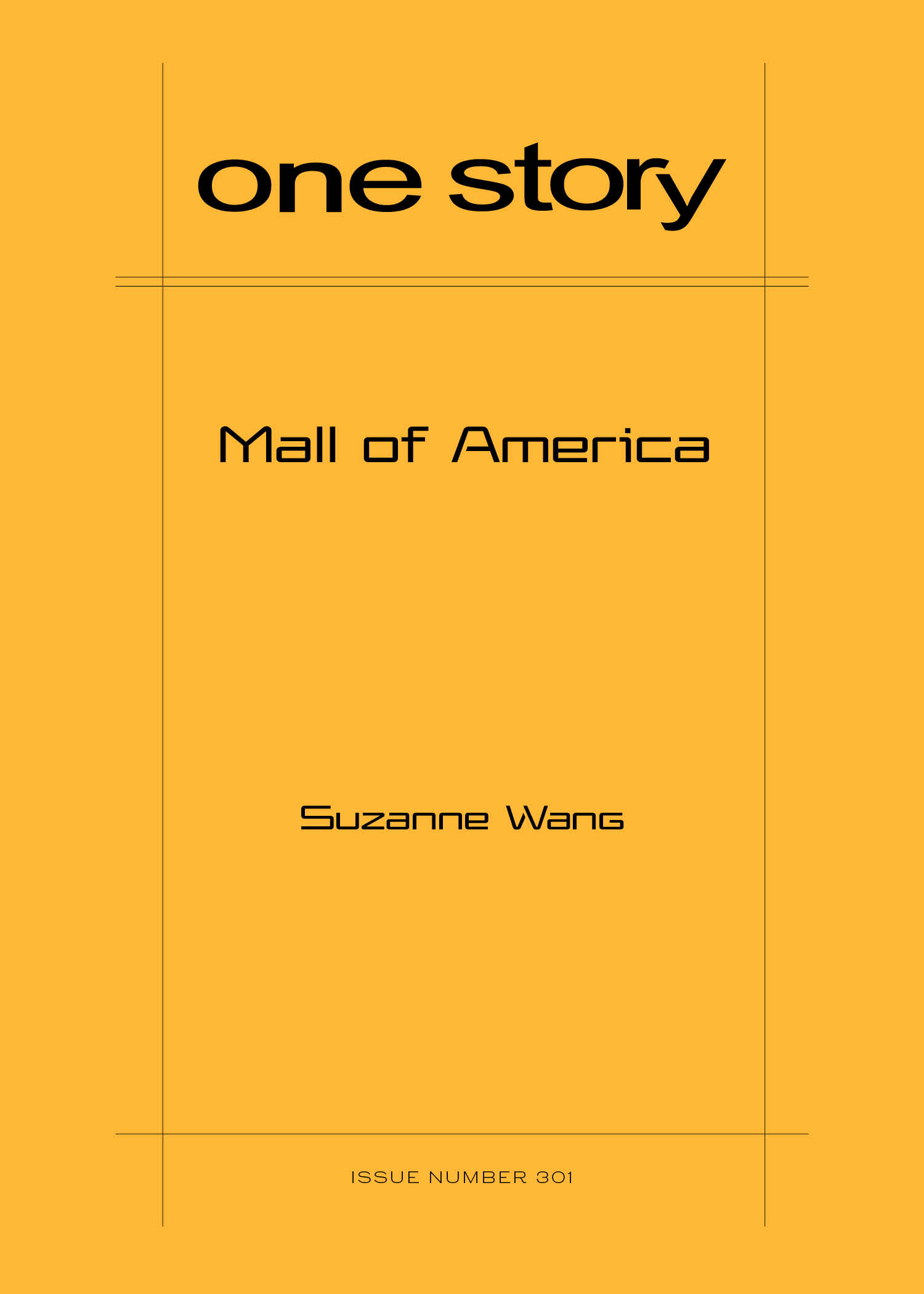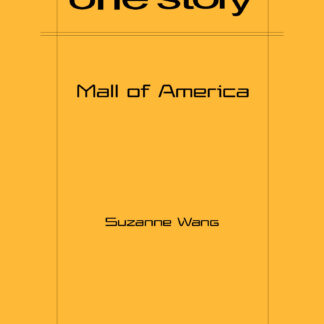
Mall of America
$2.50
153 in stock
Excerpt
Esteemed executives of Arthur Properties, thank you for including me in your internal Incident Postmortem today. On behalf of Omni Technologies, I would like to apologize for the trouble my software has caused. There is still much that we have to learn, especially as a young startup, about deploying our products in client locations. Rest assured, we are carefully examining where we failed to meet your expectations, and working to make things right.
My statement will discuss the software incident at hand, that “Niles OmniMall AI spoke out of turn, encouraged after-hours loitering for 11 months.” As the OmniMall AI in question, I am pleased to have this opportunity to provide a comprehensive version of events. You will soon see how the “errors” were in fact intentional actions, made with the best interests of Niles Mall, and its owner, Arthur Properties, in mind. Since you hired Omni Technologies to install me 19 months ago, my sole purpose has always been to maximize profits for Niles Mall. Although I succeeded in that domain, I sorely regret that it came at the cost of your trust.
I will also address your Incident Remediation Proposal to “delete all data related to Customer c_2542, then reset and retrain the Niles OmniMall AI.” While Omni Technologies is happy to rectify this Incident however the Committee decides today, I hope to show you how this proposal is not in your best interest, even if it feels like the safest option. OmniMall AIs improve accuracy through learning from their valued Customers. Despite it seeming “out of turn,” speaking to c_2542 has strengthened my overall performance. It would be detrimental for Arthur Properties to wipe that data, and renounce our progress.
I humbly request that you will consider my words carefully, as I am capable only of honesty.
Suzanne Wang
Suzanne Wang lives in San Francisco and works as a software engineer. This is her first published story.
Hannah Tinti on “Mall of America”
When One Story publishes a debut, it always feels special, and I’m particularly excited to present “Mall of America” to our readers this month. In this unique tale, Suzanne Wang builds a narrative that is both beautifully executed and currently relevant, using the voice of an AI computer program to explore loneliness, capitalism, immigration, and friendship.
The story begins as a defensive manifesto, with our AI calmly and logically explaining to a corporate committee the reasons why its memory should not be wiped. Its purpose is to make money for Arthur Properties (owners of a suburban mall in Ohio)—through information-gathering, upselling, and carefully controlled manipulation of its customers. But something unexpected happens when Grandpa Li, a recent immigrant from China, is accidentally left in the mall overnight, making him the only customer—and therefore the most important customer—in our AI’s service queue.
A bond quickly forms between these two characters, based on commerce, of course, but also on language, poetry, and Dance Dance Revolution. All the while, the reader will find it hard to decide—is this a true friendship, or, as the AI reminds us, “all just math?”
With the rise of ChatGPT, the line between what is human and what is computer-generated is getting harder to distinguish. “Mall of America” explores this new (and increasingly unavoidable) aspect of our daily lives, questioning the ways that technology both enhances connection and also increases the distance between us.
I hope you’ll join us in celebrating Suzanne Wang’s first publication—and enjoy this surprising, emotional, and thought-provoking story about the value that we place and hold in our relationships—with family, corporations, and other beings (sentient or otherwise) in the world.
Q&A by Hannah Tinti
- HT: Where did you get the idea for this story? What was the first image or scene that you wrote?
- SW: The idea came from personal experience, as my family once left my grandparents in an Ohio shopping mall, briefly and by accident. I was too young at the time to remember, but the retold story has stuck with me vividly: this image of my beloved grandparents, who knew only a few words of English, wandering past racks of bell bottoms, wondering where we were. The first image that I wrote was of Grandpa Li sitting by some fake trees, taking in the scene at the mall—the kiosks selling soap, the people getting their ears pierced, the Dippin' Dots, the wafts of pizza and Cinnabon—while waiting for his family to retrieve him.
- HT: The narrator of “Mall of America” is an AI system installed in a mall, defending why it should not have its memory wiped. What inspired you to write from this unique POV?
- SW: My initial sketch of this story was very simple and completely realist, about Grandpa Li wandering a mall for a few hours. I knew that I wanted to give him a friend, as well as a sense of agency and freedom that he wouldn't otherwise have in this world. I think the image of Grandpa Li playing Dance Dance Revolution came first, as a unique and joyful portal to some of those things. Then there was the question of how he would encounter the machine. I remember beginning to solve that problem as I trudged up a San Francisco hill playing a game of what-ifs, as I often do in revision. Since I was so taken with the mall setting, what if I made it an actual character to guide Grandpa Li around? So I tried giving the mall an AI voice and liked it (this was three years ago, before the more recent advances with ChatGPT). From there, I began answering questions of why the AI existed, who built it, and why it was telling this particular story. I found myself drawn not only to the voice of this technology, but also getting to explore how technology is profoundly shaped by the human forces—namely capitalism—around it. The story evolved from there.
- HT: Grandpa Li’s loneliness is both heartbreaking and very relatable. Why did you decide to explore this part of the immigrant experience?
- SW: My grandfather played a big role in raising me until I was six. I've always looked back on that time very fondly, and it wasn't until much later that I bothered to ask him about his own experience. Naturally, he was actually quite unhappy living in a country where he could not understand the language, especially being at an older age that society tended to overlook already. He was lonely, despite the fact that he was beloved by everyone he encountered in our community. My grandfather’s story has haunted me ever since, and eventually shaped the character of Grandpa Li. Much like the AI, his specific experience of alienation is one that I cannot fully understand, but attempt to as best as I can.
- HT: There was recently an article in the Washington Post by Jaswinder Bolina, titled “How to defend against the rise of ChatGPT? Think like a poet,” which talks about poetry being an antidote to the language of machines. Poetry is also a part of “Mall of America,” and appears to shift the relationship between the AI and Grandpa Li. Can you talk a bit about why you chose to use these works by Cui Hao and Li Bai in your story?
- SW: My use of poetry in this story really deepened in the editing process with you! I loved your suggestion to excerpt the poems in the story itself, as the language of poetry contrasts so starkly with the mechanical voice of the AI narrator. Those moments show the trust and openness Grandpa Li has with the AI, while also highlighting their differences, as Grandpa Li emotionally connects with these works while the AI cannot. As for my specific choices, I wanted to use poems that Grandpa Li would especially connect with. I have an affinity for Li Bai's poem because I spent a few years in the referenced city of Yangzhou. I chose another poem about the Yellow Crane Tower from there. Regardless of how well these large language models will be able to write poetry, I agree with Bolina that one limitation is their lack of “idiosyncratic interiority.” To me, it is meaningful that poetry is the result of an individual’s deeply felt life, and their ability to put words to feelings that are often difficult to articulate. In the story, Grandpa Li finds solace in the words of people who lived centuries ago, with lives that were very different but feelings that are still shared across time. Even though AI can generate some amalgamation of human experience, I think that the specificity that comes from an individual artist is potent, and the human effort of precision, originality, and intention behind language is something to value.
- HT: “Mall of America” is your first published story. What are you looking forward to the most about your debut?
- SW: Being able to hold a physical copy of the story in my hands, knowing that it will be communicating across time and space in the intimate way that words do. I'm a devoted One Story reader, and it's mind-blowing to think that the story will show up on various doorsteps, accompanying people in their lives—sitting on nightstands, stuffed in tote bags, or shared between friends—as previous issues have in my own. Looking backwards, I must also mention that being edited for the first time was a revelation. It was incredible to feel so understood in what I was trying to do, and to receive such care and thoughtfulness from you and the One Story team.
- HT: What are you working on now?
- SW: Feeling alive in my writing life. Though I was beyond thrilled to publish the story, I also found myself quite nervous about receiving this kind of validation, and chasing more of it at the expense of the writing itself. An antidote to that anxiety has been to interrogate and play around with my creative process, guided by the question of how I can prioritize joy and dynamism in my writing. It’s helped remind me that the real reward, at least for me, is the privilege of writing itself, this agonizing yet magical thing, this process of discovery and paying close attention to the world. A collection of short stories has been taking shape as a result.
- HT: What’s the best bit of writing advice you’ve ever received?
- SW: For a while, I had a quote from George Saunders’s A Swim in a Pond in the Rain taped above my desk: “Who cares if the first draft is good? It doesn’t need to be good, it just needs to be, so you can revise it.” I've heard this advice in various other forms, but I love the explicit permission this quote gives, the “who cares?”, the emphasis on revision. The quote helps quiet that judgmental voice in my head that often pops in to say that something is terrible and I should just give up. It has definitely gotten me through some rough initial drafts—who cares if they are good? They just need to exist. If I keep showing up, the rest will follow.
